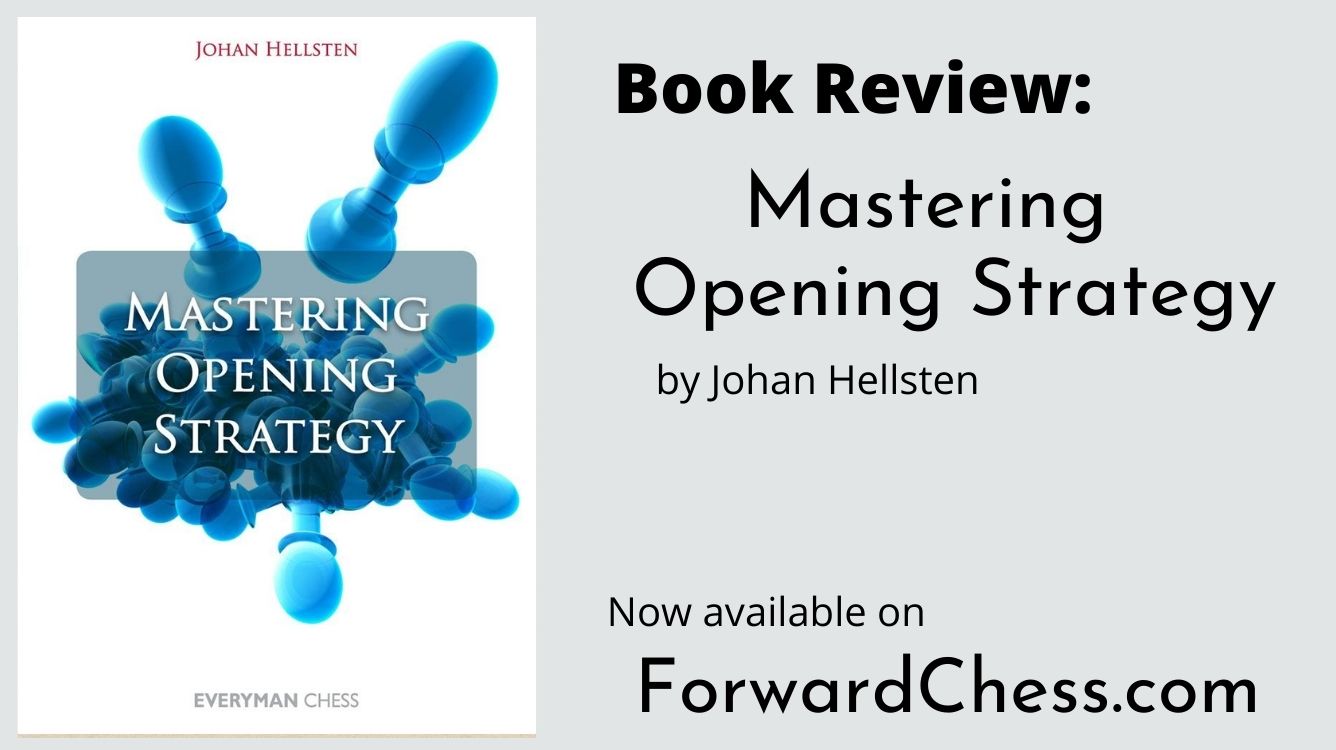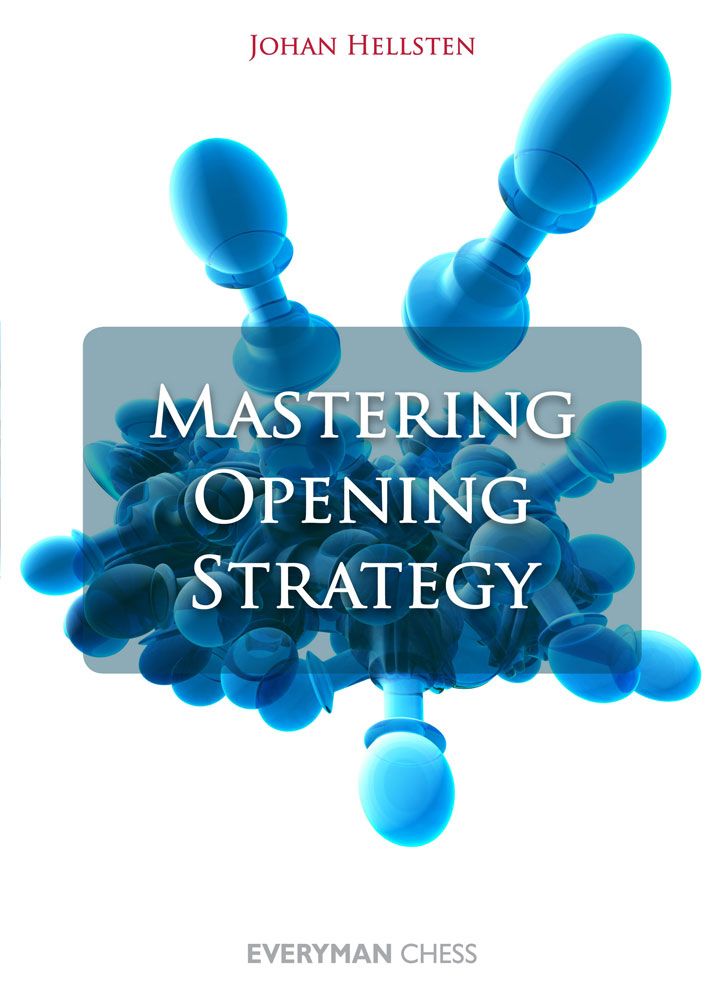“I feel that the main reasons to buy an opening book are to give a good overview of the opening, and to explain general plans and ideas.” – GM John Nunn (2006)
Our BOOK OF THE WEEK is Mastering Opening Strategy by Johan Hellsten.
While club players should not focus primarily on opening theory, it is important to understand what both sides should be fighting for from the first moves. Opening principles are useful, but they can be easy to misapply if you don’t understand the reason why the principles work when they do. The purpose of this book is to explain the most important principles and holistic ideas in the opening to make it clear which opening principles are inherent within chess and how to apply them correctly. This is done through detailed explanations and annotated examples.
Here is a sample from Mastering Opening Strategy.
Chapter 1: The nature of development
Introduction
The quick development of the pieces is a key condition in the opening, in order to exploit their power to the maximum and secure the king. Leaving aside other positional factors such as material, space, and structure, the time factor plays a crucial role in the initial phase of the game. A player left behind in development might face serious problems when some of the pieces, such as the rooks, can’t easily take part in the battle. Consider the following positions which we will soon come back to in this chapter:
White has already brought all his pieces into the battle; in contrast, Black still hasn’t mobilized either rook and he has failed to secure his king. Take it for sure that he will have a hard time defending this position.
Nominally White is a piece up, but the difference in activity between both sides’ forces is simply overwhelming. When teaching young players, who tend to have big respect for the nominal value of the pieces, in such a position I make them observe that White has ten points out of the game! For example, the rook on a1 hardly has the same value on e8, and this is, after all, what development is all about.
This position is actually from the next chapter, but it suits our discussion. Black has won a pawn, but his poor kingside development will leave him suffering badly once White achieves d4-d5, and that will come on the next move! In contrast, if Black had an extra tempo, i.e. if …e7-e6 was already on the board, then after …Bb4! His chances would increase dramatically. One single tempo makes a huge difference in the opening battle, as we will often see.
So who suffered in these depressing positions? Dolmatov, Topalov, and Timman, in games contested in 2004, 1999, and 2002 – which makes it clear that the concept of development is present in battles even at the highest level. By the way, observe the importance of the queens’ presence in the above positions – if these are removed, then Black would probably be okay in the first one, White would be winning in the second one, and his compensation for the pawn in the third one would look much less convincing.
A few principles to bear in mind:
- The imbalance between attacking and defending pieces is a key factor in any attack, and this certainly applies to positions where one side is better developed than the other, as in the three positions above.
- The opening or sharpening of the position almost always favors the better-developed side, which makes this a key method when exploiting a lead in development.
- The conversion of a lead in development into a more stable advantage often requires heavy usage of tactics, sacrifices, etc. Throughout the book, I often use the term “punishment” when referring to such actions, including standard methods such as opening the position, attacking weak points in the enemy camp, keeping the opponent’s king in the center, and swapping his active pieces, etc.
What others are saying:
“Mastering Opening Strategy should enjoy a wide audience. Players from 1600-2200 will find it a first-rate guide to learning intermediate and advanced opening principles and ideas, while teachers will find it offers a wealth of training material. A third group, those who simply enjoy playing through high-quality comments (predominately prose) on instructive modern games, will also find what they are looking for.” – IM John Donaldson
Click the link below to purchase the book or read the free book sample.
- New Release: Chess Analysis – Reloaded - March 9, 2024
- Review: The Art of The Endgame – Revised Edition - February 14, 2024
- Review: Study Chess with Matthew Sadler - December 13, 2023

